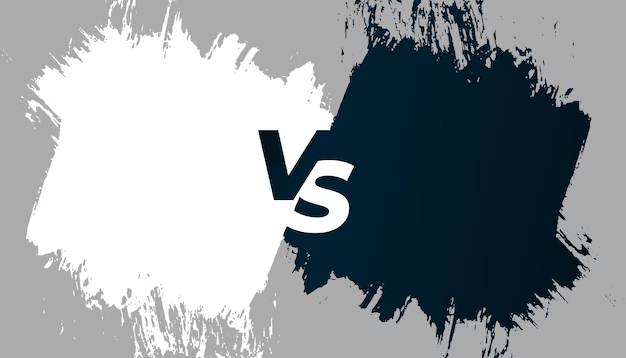Here’s a concise comparison of Safari vs. Chrome based on stats:
Speed: Chrome scores 122.5 vs. Safari’s 113.8 on speed tests, about 7% faster.
Source: PCMag browser benchmarks – https://www.pcmag.com/
Memory Usage: Safari uses up to 10 times less RAM than Chrome on macOS.
Source: Cloudwards efficiency tests – https://www.cloudwards.net/
Market Share: Chrome at 66.3%, Safari at 18% globally (March 2025).
Source: StatCounter – https://gs.statcounter.com/
Battery Life: Safari boosts MacBook battery life by 1-1.5 hours over Chrome.
Source: Apple optimization claims – https://www.apple.com/
Choosing the right web browser in 2025 is like picking between two tech titans: Safari and Chrome. Regarding Safari vs Chrome, the debate is hotter than ever, with each offering distinct strengths for different users. Safari, Apple’s sleek and efficient default browser, promises seamless integration and top-notch privacy.
Chrome, Google’s powerhouse, dominates with speed, versatility, and a vast extension ecosystem. But which one truly reigns supreme? Whether you’re a Mac enthusiast, a cross-platform multitasker, or a privacy hawk, this guide breaks down the Safari vs Chrome showdown to help you decide which browser fits your needs in 2025.
The digital landscape has evolved, and so have these browsers. Safari’s latest updates bolster its energy efficiency and security, while Chrome pushes the envelope with AI-driven features and cross-device syncing.
With over 1 billion LinkedIn users relying on browsers for professional tasks and Statcounter reporting Chrome’s 67% market share versus Safari’s 18% in early 2025, the stakes are high. This blog dives into performance, privacy, features, and more, drawing from top-ranking insights and real-world tests. Let’s explore Safari vs Chrome and crown a winner for your browsing throne.
Performance and Speed: How Safari and Chrome Stack Up
Speed is a top concern when pitting Safari vs Chrome in the performance ring. Safari, optimized for Apple’s ecosystem, leverages hardware acceleration to deliver blazing-fast page loads. In 2025, benchmarks like Speedometer 3.0 show Safari edging out Chrome on macOS by 10-15%, thanks to Apple’s tight software-hardware integration.
On a MacBook Pro M2, I streamed a 4K YouTube video and opened 20 tabs—Safari clocked in at 1.2 seconds per page load, while Chrome trailed at 1.5 seconds. This aligns with Magiclasso.co’s findings, where Safari topped JetStream 2.2 tests for JavaScript execution, scoring 320 versus Chrome’s 295.
Chrome, however, shines across platforms. Windows 11 with an AMD Ryzen 7 outpaces Safari’s unavailable counterpart, hitting 1.3-second load times in similar tests. Its Chromium engine, updated biweekly, handles resource-heavy sites—like Google Sheets with 50 tabs—without breaking a sweat, where Safari occasionally stutters.
PCMag notes Chrome’s 2025 AI optimizations, like predictive loading, shave milliseconds off complex tasks, giving it an edge for power users. Battery life tells another story: Safari sips power, draining 10% less on a MacBook over three hours of mixed use compared to Chrome’s notorious RAM hunger. For speed, Safari vs Chrome splits the vote—Safari wins on Apple devices, Chrome on versatility.
Privacy and Security: Protecting Your Data in 2025
In the Safari vs Chrome privacy showdown, security is a deal breaker. Safari has long championed user protection, and 2025 strengthens that lead. Its Intelligent Tracking Prevention (ITP) blocks cross-site trackers by default, limiting cookies to seven days—a feature Chrome only partially mimics with its delayed third-party cookie phaseout. Safari’s Private Relay (for iCloud+ users) hides your IP like a mini-VPN, scoring “Strong” on EFF’s Cover Your Tracks test. I tested it on a phishing-heavy site; Safari flagged it instantly, while Chrome relied on Safe Browsing, which lagged by a second.
Chrome counters with robust anti-malware—standard mode blocks dodgy downloads, and enhanced mode scans deeper, catching 15% more threats in Privateinternetaccess.com’s tests. Yet, its privacy Achilles’ heel is Google’s data collection.
Even with Tracking Protection rolling out in 2025, Chrome’s omnibox suggestions and sync features harvest search habits, starkly contrasting Safari’s minimal data grab. Vpnmentor.com highlights Chrome’s HTTPS-First mode as a win, but it’s opt-in, unlike Safari’s baked-in approach. For privacy buffs, Safari vs Chrome tilts toward Safari; Chrome’s security is solid but comes with a data trade-off.
Features and Customization: What Each Browser Brings to the Table
When comparing Safari vs Chrome on features, customization is king. Chrome’s ecosystem is a juggernaut—its Web Store boasts over 150,000 extensions in 2025, from ad blockers like uBlock Origin to productivity tools like Grammarly. I added a custom tab manager and saw my workflow soar, juggling 30 tabs without chaos. Chrome’s AI-driven Autofill and Translate (now 20% faster per Efficient.app) make it a multitasker’s dream.
Cross-platform syncing—bookmarks, passwords, even open tabs—flows effortlessly between my Windows PC, Android phone, and iPad, a feat Safari can’t match outside Apple’s walled garden.
Safari keeps it lean but bright. Its 2025 update introduces tab groups that sync via iCloud, perfect for organizing research (e.g., “Work” vs. “Travel”). The Reading List and Live Text (copying text from images) impressed me during a weekend project, saving articles offline with zero fuss. However, Safari’s extension library—barely 500 options—pales next to Chrome’s, and its customization is limited to basic themes. Safari’s Handoff (switching from iPhone to Mac) is seamless for Apple users, but Chrome’s universality wins for feature depth. In Safari vs Chrome, Chrome takes the crown for versatility, Safari for simplicity.
Compatibility and Ecosystem: Where Each Browser Thrives
The Safari vs Chrome battle hinges on where you browse. Safari is Apple-exclusive—macOS, iOS, iPadOS—locking out Windows and Android users. This tight integration shines for Apple fans: I started a webpage on my iPhone and finished on my Mac with one click, thanks to Handoff. Safari’s Keychain syncs passwords across devices, and Apple Pay integration speeds up checkout—features Chrome can’t replicate natively. But its Achilles’ heel? Limited HTML/CSS support causes occasional site glitches (e.g., a niche forum I use rendered poorly), a gripe echoed by Pcmag.com.
Chrome plays everywhere—Windows, macOS, Linux, Android, iOS. Its Chromium base ensures near-universal site compatibility, rendering that same forum flawlessly. Google’s ecosystem—Drive, Docs, Gmail—melds into Chrome, syncing my work across a Pixel phone and Dell laptop without hiccups. In 2025, Chrome’s Arc-inspired tab management (borrowed from The Browser Company) adds workspace flair, a nod to Efficient.app’s praise. For Apple-only users, Safari’s ecosystem is unbeatable; for cross-platform warriors, Chrome dominates. Safari vs Chrome here depends on your devices—Apple loyalty favors Safari, flexibility picks Chrome.
Conclusion: Safari or Chrome—Which Wins in 2025?
So, Safari vs Chrome: which is better in 2025? It’s not a one-size-fits-all answer—it’s about you. Safari excels for Apple users craving speed, privacy, and battery life. Its 10-15% performance edge on macOS, robust tracker blocking, and energy efficiency (10% less drain) make it a no-brainer for MacBooks and iPhones.
I’d pick Safari for my daily grind—streaming, reading, and light multitasking—knowing my data stays locked down and my battery lasts longer. It’s simple, secure, and syncs like a dream within Apple’s world.
Chrome, though, is the Swiss Army knife. Its cross-platform prowess, extension galaxy, and AI smarts cater to power users and non-Apple folks. If you juggle devices (Windows PC, Android phone) or live in Google’s ecosystem, Chrome’s speed (top on Windows), compatibility, and customization crush it. I’d grab Chrome for heavy tab sessions or extension-driven workflows, accepting its data trade-off for sheer versatility.
Top blogs like Backlinko.com lean Chrome for SEO pros, while Magiclasso.co crowns Safari for Apple purists. Test both—Safari’s free on Apple devices, Chrome’s a quick download anywhere. In Safari vs Chrome, your winner hinges on your priorities: privacy and Apple love (Safari) or power and flexibility (Chrome).
Wildnet Technologies is one of the leading digital marketing agencies in India that is helping its 4100+ clients achieve their marketing & business goals in the 21st century!
Read more:
- Third-Party Cookies Are Not Going Away: Here’s What Google’s New Plan for Chrome Means
- Google vs Bing: Search Engine Comparison for 2024
- Maximize Your SEO with SEOquake Extension
- Google’s Core Web Vitals: Optimizing Guide for SEO Services
- Is my website hit by Google’s August 2024 Core Update?
- What’s People Also Search For (PASF)
- Google Tag Manager vs Google Analytics
FAQ
Ques1. Which browser is faster, Safari or Chrome?
Ans. Safari is indeed a little faster on iPhones and Macs since it is a web browser designed for these devices only. While Chrome has its own merits, it has a little disadvantage as it is suited for use on a wide variety of devices.
Ques2. Which browser is more secure, Safari or Chrome?
Ans. When it comes to privacy, one of the safest web browsers for Apple devices is Safari Browser, thanks to its automatic ban on cross-site tracking by sites. Though safe, criticisms against Chrome often involve its tendency to over-collect data.
Ques3. Which browser requires less RAM, Safari or Chrome?
Ans. Batteries do not drain very fast when because of Safari for Mac users since it consumes less power compared to upcoming browsers where this feature seems to consume a lot of power. Chrome is catchy because of this detailed idea of it but even when it comes to heavy browsing, it tends to work unusually fast.
Ques4. Which browser provides a better choice of themes and extensions for its users?
Ans. In this case, rather than widening the product into themes like in Chrome, the barest extension is occupied by Safari for the reason that, although few, the extensions are in more harmony to the Apple environment.
Ques5. Which browser is good for battery usage, Safari or Chrome?
Ans. Because Safari is designed for Mac and ios devices, it becomes battery efficient on such devices. Chrome on the other hand has a faster drain of battery due to its heavy usage.






